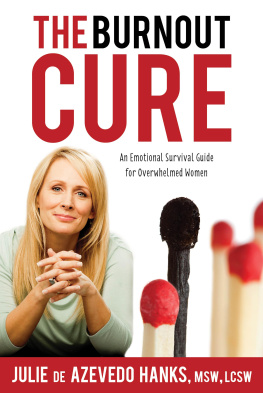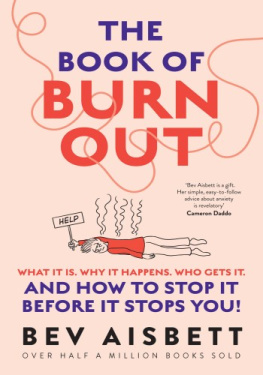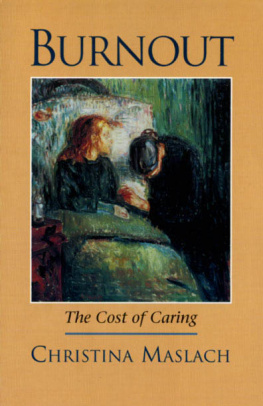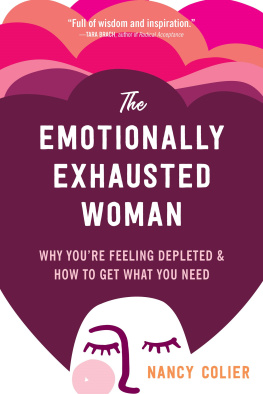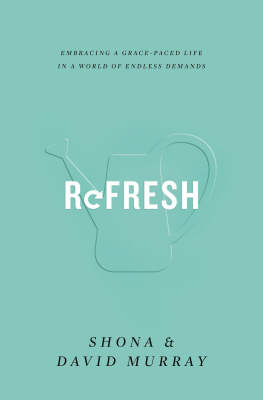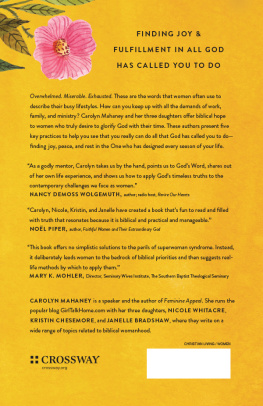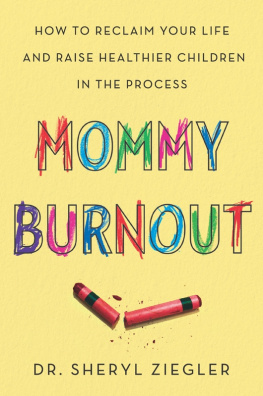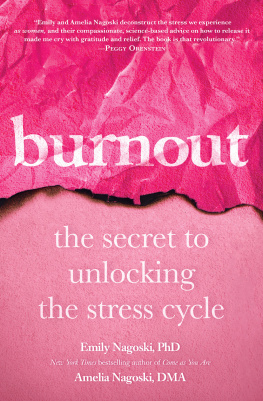Burnout Eyewave, istockphotography.com. Julie de Azevedo Hanks Portrait by Russ Dixon.
Cover design copyright 2013 by Covenant Communications, Inc.
Published by Covenant Communications, Inc.
American Fork, Utah
Copyright 2013 by Julie de Azevedo Hanks
All rights reserved. No part of this book may be reproduced in any format or in any medium without the written permission of the publisher, Covenant Communications, Inc., P.O. Box 416, American Fork, UT 84003. This work is not an official publication of The Church of Jesus Christ of Latter-day Saints. The views expressed within this work are the sole responsibility of the author and do not necessarily reflect the position of The Church of Jesus Christ of Latter-day Saints, Covenant Communications, Inc., or any other entity.
First Printing: August 2013
978-1-62108-587-4
Acknowledgments
You would not be reading this book were it not for the consistent support of my loving husband, Jeff, and our four wonderful children. They have generously supported me in so many areas of life that have contributed to this book. I am truly blessed and buoyed up by their love.
Many thanks to Jana Erickson and Laurel Christenson for lighting a fire under me to carve out time to write this book, and to Kathy Gordon, Robby Nichols, and the Covenant team for keeping the fire alive.
Thank you to my friend Matt Jackson and my sister Rebecca Overson who provided invaluable feedback and much-needed encouragement during the writing and editing process. Also, thanks to my friends and family for traveling with me through the ups and downs of this book-writing journey.
My heart is full of gratitude for the thousands of women whove shared their hearts with me over the past several years through meaningful discussions about our common struggles as LDS women. These enlightening conversations have helped me to tease out the cultural myths and doctrinal truths presented in this book and have enabled me to raise my voice for the importance of self-care and emotional health in applying true doctrine. The perspectives and insights of my mother, my sisters, my dear friends, my therapy colleagues, my therapy clients, and the Preventing Emotional Burnout workshop and survey participants are woven throughout this book.
I am grateful to my goodly parents for being incredibly loving and always supportive, instilling in me a desire to make a difference for good. Im also thankful that they were wise enough to send me to a therapist as an adolescent, setting me on a journey toward emotional awareness that has brought me a more fulfilling and rich life than I might have had otherwise.
I want to express love to my Heavenly Father for His infinite love and His perfect plan of growth, and to Jesus Christ for showing boundless love and mercy through His life and sacrifice.
Preface
One of the great struggles we often face as women in the LDS Church whose lives are full of charity for others is avoiding personal emotional burnout.
As a person with strong interests and varied passions, I tend to take on many worthy endeavors simultaneously. For example, while writing this book, I also have responsibilities and commitments as a wife and mother, a gospel doctrine teacher, a performing songwriter, a blogger, media contributor, business consultant, public speaker, and the owner and director of a therapy clinic. These are all good pursuits; I derive much joy and my soul is strengthened by what I do. However, at times, I door feel as though I dotry to do too much . It seems that Im always teetering somewhere between exhilaration and exhaustion. Emotional burnout is a topic I know well.
I want to make a difference for good in every aspect of my lifeespecially in the lives of others. Tuning in to the Spirit and being aware of my own emotions and needs allows me to prioritize and accomplish the things that are important to me and that I feel called to do. Heavenly Father seems to have put many things in my heart that bring me great joy, yet each of them comes with a price. Prayerful guidance from the Spirit helps tutor me in what endeavors should take top priority in my life right now.
My commitment to the gospel and to my family has been and will always be a priority, which often leaves me feeling like engaging with the rest of the good aspects of my life is like taking on an impossible juggling act. The only way I can manage to make my abundant life work in a healthy way is to tune in to the Spirit, stay aware of my own emotional needs, and constantly sort through priorities as they shift and change and as I strive to serve others. My hope and prayer is that the insights and tools I offer in this book can help women of the Church who are feeling emotionally drained or just plain exhausted and overwhelmed to find peace and strength, as I have in my life.
My experience as a psychotherapist for nearly two decades has shaped me and provided the basis for many of the insights in this book. Im amazed by the many bright, good, committed women who pour out their hearts to me about not feeling good enough or about feeling like a failure because of the so-called imperfections and struggles that brought them into therapy. By comparing themselves to other women in their family, ward, and neighborhood, the typical women I counsel are battling feelings of discouragement and worthlessness about their performance in life. These types of comparisons are often filled with a focus on the apparent flawless high standard that we seem to see in others while being painfully aware of each and every shortcoming we might have.
Discouragement is one of Satans greatest tools and is frequently accompanied by serious issues such as chronic exhaustion, depression, fear, worry, anxiety, resentment, confusion, and self-doubt. These emotions are expressed regularly in therapy sessions by women who appear to have it all together on the outside but who are suffering quietly on the inside.
Before proceeding further, I want to make clear that I believe strongly in the divine principles of charity, especially charity expressed as Christ-like service. Living Christ-centered lives of service can strengthen us in every aspect of our lives. There is real power in the paradoxical statement that it is only by losing ourselves that we find ourselves. But lets look at this statement a bit more closely. The scripture often quoted is found in Matthew 10:39, and the precise wording is very important for my purposes in this book: He that findeth his life shall lose it: and he that loseth his life for my sake shall find it. The key to this phrasing is losing our lives for the Lords sake ; that is, getting lost in living a Christ-centered life. Of course finding our lives in the secular sense results in a selfish and empty life; while this is certainly a problem in our world, it not the focus of this book. This book is focused on helping those of us who have perhaps lost ourselves completely in the service of others and are exhausted to the point that we can no longer find, nourish, care for, and strengthen ourselves so that we might be more effective in continued service of others. The goal of this book is to help us learn how to live lives full of compassion and service for others as we wisely care for ourselves.
My first experience with an overwhelmed woman was long before I became a therapist. My mom, while a generous and unconditionally loving woman who was fiercely dedicated to her role of wife and mother, was frequently overwhelmed by the demands of her life. Married at nineteen, she and my dad quickly started a family, leaving little time for her to realizelet alone explorewhat her own needs were. She set out to raise her family, support my dad in his professional endeavors, and serve faithfully in the Churchall of which she did well for decades. My parents raised nine children together. Understandably, my mom didnt have much time to take care of her own needs.

